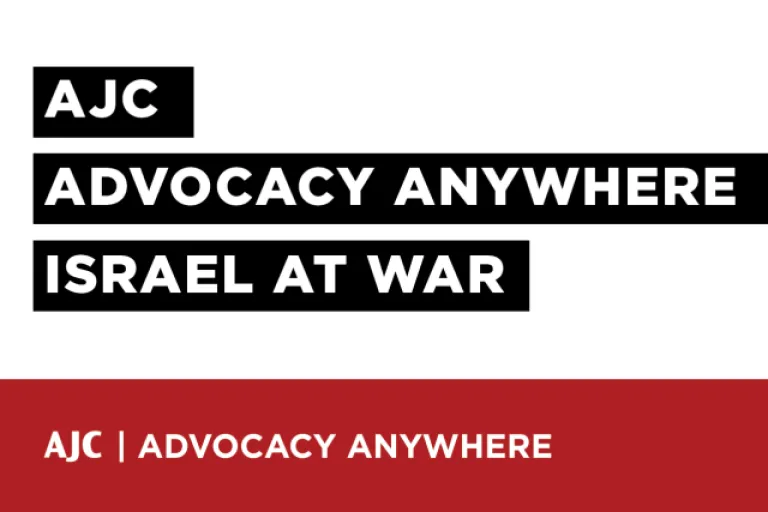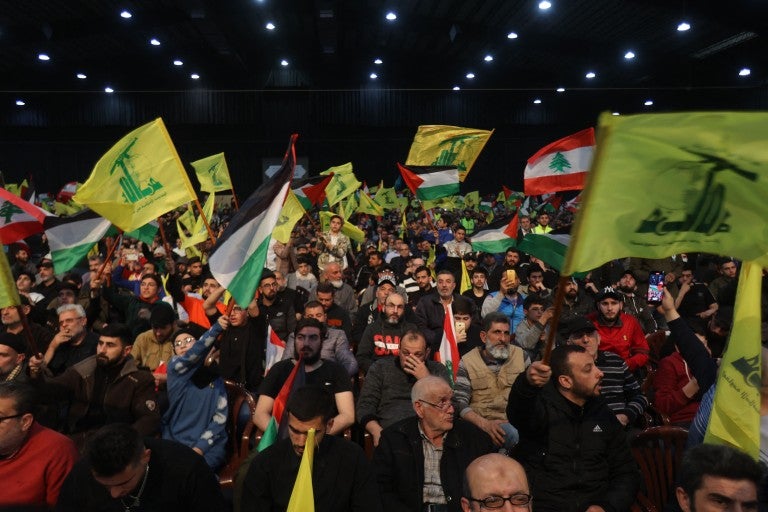July 6, 2017 — Jerusalem, Israel
A decades-long AJC initiative to establish a trilateral alliance of India, Israel and the United States took historic steps toward fulfillment this week with the visit by Indian Prime Minister Narendra Modi to Israel, where he received an AJC delegation joined by Indian American leaders and Israeli and Indian policy analysts.
Before accompanying Israeli Prime Minister Benjamin Netanyahu to a welcoming rally of some 10,000 Israelis of Indian origin, Modi expressed to the delegation his gratitude for its support for strengthened relations with India – and received from AJC Honorary President Stanley Bergman and AJC Associate Executive Director for Policy Jason Isaacson praise for his progress in Indian governmental reform and for his success in advancing ties with Israel and the United States.
“In the space of just 10 days, Prime Minister Modi has visited Washington and been received warmly by President Trump, and has now been embraced with exuberance by Prime Minister Netanyahu – and by Israeli society as a whole,” said Isaacson, who has overseen AJC outreach to India since the early 1990s.
“The relationship between India and Israel, sister democracies that discovered each other in earnest only with the establishment of full diplomatic relations 25 years ago, has entered a new and even more promising phase. Its potential – in trade, investment, educational and technology and cultural exchange, co-manufacturing, and strategic cooperation – is virtually unlimited. With our Indian American colleagues, we look forward to an expanding partnership that will benefit all three countries.”
The meeting with Modi, the first Indian prime minister to visit Israel, was moderated by Dr. Bharat Barai, a Chicago physician who is a longtime friend of the Indian leader and who founded the Global Indian-Jewish Relations Institute. Other participants included M. R. Rangaswami, a Silicon Valley entrepreneur and founder of the organization Indiaspora, Sanjeev Joshipura, Indiaspora Director; Maj. Gen. (ret.) Amos Yadlin, Executive Director of Israel’s Institute for National Security Studies (INSS); and Amb. Oded Eran, senior research fellow at INSS; Dr. Efraim Inbar of the Begin-Sadat Center for Strategic Studies (BESA); and Shivnath Thukral, Managing Director of Carnegie India. AJC was also represented by Dr. Marion Bergman, chair of AJC’s Africa Institute; Avital Leibovich, Director of AJC Jerusalem; and Nissim Reuben, Assistant Director of AJC’s Asia Pacific Institute.
AJC, which has maintained a representative in India for more than 20 years, conducts periodic leadership consultations in New Delhi; brings Indian policy analysts, religious figures and thought leaders to Israel under its Project Interchange program; meets annually with Indian prime ministers on the sidelines of the UN General Assembly session in New York; and engages in dialogue, cultural programming and collaborative advocacy on common policy concerns with the Indian American community in cities across America. AJC has been meeting with Prime Minister Modi since he was Chief Minister of Gujarat State.
The Modi meeting came one day after seminars on India-Israel relations – co-organized by AJC, GIJRI and Indiaspora – at INSS, on the Tel Aviv University campus, and BESA, on the Bar-Ilan University campus. “Strategic Challenges and Opportunities in the India-Israel Relationship” was the subject of Isaacson’s address to the INSS seminar.
Speakers in the think tank programs included Dr. Vijay Chauthaiwale, an advisor on diaspora affairs to Prime Minister Modi; Pankaj Patel, President of the Federation of Indian Chambers of Commerce and Industry; Dr. Tanvi Madan, Director of the India Project at Brookings Institution, Washington; and Prof. P. R. Kumaraswamy, of Jawaharlal Nehru University, New Delhi, and the BESA Center. Kumaraswamy authored a 2002 study for AJC entitled “Indian-Israeli Relations: Humble Beginnings, a Bright Future.”


